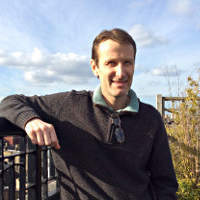In our gospel this morning we have heard how Jesus began to explain to the disciples that he must go to Jerusalem and suffer many things at the hands of the elders the chief priests and the teachers of the law.
They didn’t get it. We see that immediately and very obviously in Peter’s words – ‘God forbid it, Lord! [he said], this must never happen to you.’ But Jesus turned and said to Peter, ‘Get behind me, Satan! It wasn’t just Peter though and despite Jesus’ repeated explanations it wasn’t until after his ascension that the disciples were able to make sense of his teaching.
The church came to speak of the scandal of the cross after Paul used that phrase in his letter to the Corinthian church and that phrase describes very well why it was so difficult for the disciples to understand how victory could possibly be secured through what appeared to be such complete humiliation, torture and defeat. They longed for liberation from the persecutions and constraints that the Roman occupiers placed upon them but couldn’t recognise the ways in which even their minds were shaped by oppression. Whilst they were sufficiently inspired by Jesus’ teaching to give up their lives and follow him they had only the faintest inkling of the sacrifices and joys to which they were called.
In retrospect we can look back on the disciples and in some ways the example they provide is usefully normal. The disciples were ordinary people called to extraordinary things. That’s helpful in what it signals to each of us if we feel that any meaningful service of God’s purposes in the world is beyond us. On the other hand, the scripture provides many examples that suggests we should beware if we find ourselves imaging ourselves to be righteous or possessing particular capabilities. Grasping and accepting the nature of God’s call on our lives is challenging whilst we are distracted by our own designs and it may be a very difficult path. There is perhaps no better example of this than in today’s epistle where we find the instruction – bless those who persecute you; bless and do not curse them. Do not repay anyone evil for evil, but take thought for what is noble- ‘if your enemies are hungry, feed them; if they are thirsty, give them something to drink.’ Do not be overcome by evil, but overcome evil with good.
Sometimes when faced with this kind of teaching we hear suggestions of hopeless naivety or perhaps that it is a path that only very exceptional Christians could possibly choose such as those called to martyrdom. That’s a defensive characterisation though and one that departs from the Gospel teaching that we love our neighbour as ourselves. The teaching isn’t to love our neighbour and not ourselves or to neither love neighbour nor ourselves, rather it is a calling to love as our heavenly father loves. There is also an echo here of those various challenges that we read in the Gospel away from familial bonds, not ultimately to diminish the importance of those relationships but rather to call us to radically widen the compass of our love to embrace even those who would wish to do us harm.
There’s a saying that I’ve noticed used in common parlance recently that justice is what love looks like in public. It comes from Dr. Cornel West, Professor of Philosophy at Union Theological Seminary and Professor Emeritus at Princeton University. It’s a saying that has some intuitive appeal I think but I came across an article that referenced it and which it seemed to me described our current circumstances very well. It recognised that the nature of human life is such that some people matter to us infinitely more than others. That’s not because we believe those people to be inherently better than others of course, although perhaps we imagine that to also to be the case, but rather that the nature of the bonds that bind us override any other consideration. Often in our world, and increasingly in Western political discourse, we can see that notions of justice are shaped by bonds and affiliations as much as it is by any objective assessment. If justice is what love looks like in public it is surely a love that is given to others in equal measure regardless of affiliation.
As we look at the disciples and the difficulty they had accepting Jesus’ teaching we recognise the difficulties we continue to have with his teaching today even from this side of his death, resurrection and ascension. There is, if you like, a leap of faith that is required of us as it was of his disciples and all those who have sought to follow his way since. It is a choice ultimately of how we choose to understand and live in the world, a choice of affiliation and acceptance of the scope of God’s loving embracing of each and everyone of us, even those we might regard as our enemies. This is not the way of the world but of course Jesus points us in another direction. Those who want to save their life will lose it [he said] and those who lose their life for my sake will find it.
What looks to be an extraordinarily risky way to live if not a path to destruction, Jesus tells us is rather the sure path to our salvation. For at the scripture assures us love bears all things, believes all things, hopes all things, endures all things and elsewhere that neither death, nor life, nor angels, nor principalities, nor powers, nor things present, nor things to come, nor height, nor depth, nor any other creature, shall be able to separate us from the love of God, which is in Christ Jesus our Lord.
Thanks be to God.
Amen.



